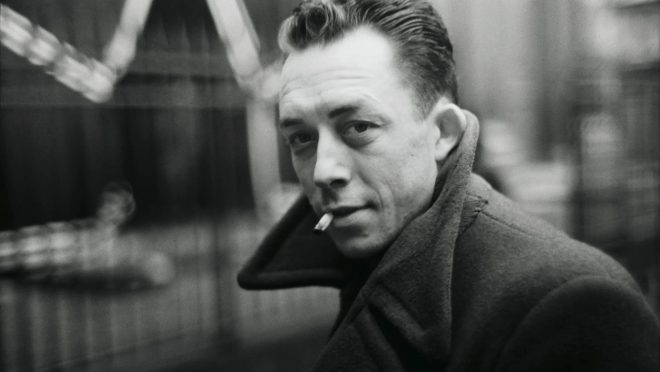Remembering Albert Camus: The man who embraced the absurd
Remembering Albert Camus: The man who embraced the absurd

“One must imagine Sisyphus happy” – the line graced the conclusion of Albert Camus’ most famous essay, “The Myth of Sisyphus”. In Greek mythology, Sisyphus is condemned by the gods to roll a boulder up a hill, only to watch it tumble down again and again for eternity. For Camus, this became a perfect image of the human condition, our endless effort to find meaning in a world that offers none. Yet he insists that Sisyphus can still be happy, because the moment he accepts his fate, he becomes free. As 7 November marks Camus’ birth anniversary, let’s have a glimpse at the absurdist’s life and beyond.
A life born of sunlight and struggle
Albert Camus was born in 1913 in Algeria to a poor French family. His father died in World War I when Camus was just a baby. His mother, who was nearly deaf and could not read, worked as a cleaner. These early years shaped him deeply. He grew up surrounded by poverty, but also by light, sunlight on the sea, dust on the football fields, and laughter among friends. He would later say that he owed everything to this mix of hardship and warmth. From it came his understanding that life can be cruel and beautiful at the same time.
The absurd: A question met with silence
Camus’s central idea, the absurd, was born from a simple tension. By nature, humans crave meaning. We want to know why we exist, what our purpose is. But the universe stays silent. For many, this silence leads to despair or religious comfort. For Camus, it led to defiance. He believed the right response was neither escape nor surrender, but revolt: to keep living fully, even when life offers no grand meaning. That is why Sisyphus must be imagined happy. He knows his fate, yet he continues, his awareness becoming his victory.
The philosophy in Camus’s fictions
Beyond essays, Camus told stories that captured how this philosophy plays out in ordinary lives. In “The Outsider”, the main character, Meursault, feels alienated from the world, watching life from a distance. His honesty, his refusal to pretend, makes him both guilty and innocent. Then in “The Plague”, Camus shifts his gaze to a town under lockdown. Through the quiet heroism of doctors and neighbours, he shows that meaning can be built through compassion, even in chaos. Camus’s characters don’t preach; they live, suffer, and make choices. Through them, he tells us that dignity lies in action, not in answers.
Finding joy in the everyday
For all his talk of death and despair, Camus loved life fiercely. He loved football, the sea, and laughter with friends. He wasn’t interested in abstract sadness; he cared about the taste of morning coffee, the sound of waves, the warmth of sunlight on skin. To him, happiness wasn’t a reward, it was resistance. When you know the world gives no promises, and still you choose to love it, you are stronger than fate.
Choosing decency over despair
Camus’s ideas were moral. He lived through wars and political upheaval, yet refused to accept that violence or cruelty could ever be justified in the name of an ideal. He argued against capital punishment and stood by the ordinary people who tried to live decently amid absurd times. For him, morality did not come from religion or rules; it came from compassion, from the decision to treat others kindly even when the world makes no sense
A lasting light of the Nobel laureate
In 1957, at only 43, Camus won the Nobel Prize in Literature for illuminating “the problems of the human conscience in our times.” Just three years later, he died in a car crash. He left behind unfinished books, notebooks full of questions, and a vision of life that still feels raw and real.
On his birth anniversary, remembering him is not about mourning. It is about acknowledging that his words still meet us where we are confused, searching, sometimes lost. The struggle of life may never disappear, but we walk beside it with open eyes, refusing to give up on joy. Camus reminds us that, like Sisyphus, the rock in our lives might be heavy, yes, but it is ours to push.


